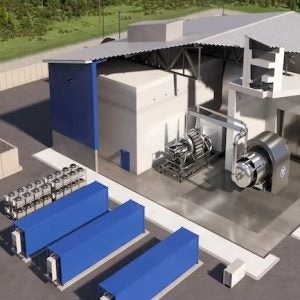Angela Merkel’s government has agreed to extend the lifespan of nuclear power plants by as much as 14 years in exchange for renewable-energy funding.
Coalition leaders agreed late on Sunday to allow seven reactors built before 1980 to run eight years longer than planned and 10 newer plants to remain open an additional 14 years, according to reports by Bloomberg. That would mean an average extension of 12 years from the original 2022 shutdown date.
The life extension will be considered by Merkel’s Cabinet on 28 September and will be written to avoid a vote in the Bundesrat, the upper house of parliament, where the chancellor lacks a majority.
Merkel is confident that the agreement has a solid legal foundation and says that she takes protests ‘seriously’. However, the extensions may be limited to nine years on constitutional grounds, according to reports in the Handelsblatt newspaper, citing government sources.
Greenpeace and the opposition Social Democratic Party and the Green Party are opposing the life extension.
The SDP and Greens, whose combined support in opinion polls exceeds that of Merkel’s coalition, vowed to annul any nuclear-plant operating extension if they win 2013 elections, the Frankfurter Allgemeine newspaper said, citing SDP leader Sigmar Gabriel and Green co-chairwoman Claudia Roth.
Greenpeace also says that if parliament approves the changes it is ready to challenge the ruling in the Constitutional Court.
Greenpeace International Climate and Energy Campaigner, Jan Beranek said: “This is not only a decision against the environment and putting people’s lives at risk, it is also a decision against the German economy. Merkel is making a grave mistake by reversing the gear and Greenpeace will fight it.”






